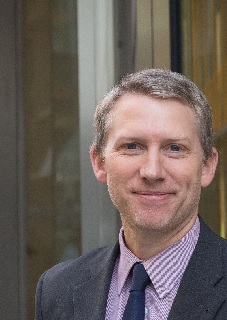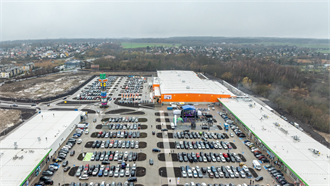Traditionally, no part of the private equity real estate industry has been more opaque than secondaries – the trading of fund interests. But thanks to some improved transparency, the European market got to hear of a significant deal last month.
PropertyMatch platform disclosed probably the largest single fund trade ever to take place in the region. APG Asset Management, the Dutch pension fund manager, sold its 24.8% stake in the CBRE GI Dutch Office Fund to undisclosed buyers for around €320 mln. As is usually the case with landmark transactions, this deal says different things.
Firstly, some pension fund managers with mature portfolios are capturing returns by selling as prudent managers should do. APG’s head of European real estate, Robert-Jan Foortse, observed recently that there are investors who are clearly under pressure to invest and feel there are good arguments to continue to do so. However, perhaps that pressure should be easing given market conditions. Investors with the benefit of a mature property portfolio roughly at allocation can afford to take money off the table and be patiently looking for the next opportunity. This transaction is an example.
Secondly, some institutional investors can be good opportunistic buyers. The back story is that in January 2008, APG sold the €1.6 bn KFN investment trust containing 80 Dutch offices to ING, boosting the latter’s Dutch Office Fund. Though APG agreed to retain a minority stake in the fund, the sale basically completed the divestment of APG’s indirect Dutch real estate holdings as it embarked on a more direct approach. However, in 2013 it opportunistically acquired a bigger stake in the Dutch Office Fund fund from Australia’s Investa Office Fund. The latter had decided to retreat from global property, and APG and others in a consortium acquired Investa’s stake at a 24% discount to NAV. If you recall, both Lone Star and Blackstone bought sizeable non-core portfolios from the fund in 2014 as CBRE GI continued to reposition it. The fund is trading at a premium to NAV and now APG has exited its holdings for what sources say might be at 2x equity multiple.
Nimble European institutions
Thirdly, the rightful buyers were nimble European institutions. The decision to sell was taken by APG last summer when it appointed CBRE. The brief was to try to sell in large chunks rather than multiple tiny lot sizes. CBRE went far and wide, and the stake sale was more than twice oversubscribed, meaning it could have been sold twice over. Significantly, all three buyers turned out to be European institutions. But should we be surprised that no Asian or US buyer ended up buying? Not really. Real estate teams of European institutional investors have become confident in the European real estate secondaries market over recent years. They were always more likely to react to a large European sale in their backyard than investors outside the region. Furthermore, the Dutch Office Fund owns some of the best offices and office developments in the Netherlands – including a 50% interest in the World Trade Center near Schiphol airport where PropertyEU is based! The institutions know yields in the Dutch office market look interesting because regional assets in the Netherlands have taken a beating, yet the Netherlands is recovering and arguably will benefit from Brexit.
Fourthly, the continental European secondaries market is undeniably evolving. There was a time when the secondaries real estate market was just about UK balanced property funds, but continental European volumes are transforming. Some people attribute this to the aftermath of the 2008 financial crisis. Naturally, investors in funds were upset to discover their interest was nowhere near NAV in many instances and the result was that investors in battered funds became less passive. A thrust towards greater transparency and the formation of advisory committees led to greater confidence in assessing the true value and direction of NAV in many European funds. In turn, being able to forecast NAV has helped institutional investors to price with confidence, explaining why continental European secondaries have gained traction.
This last point is perhaps the most important of all. For investors need all the tools at their disposal if they are to manage their portfolios optimally. Perhaps the next time you fly into Schiphol airport and take the train past the WTC complex in Amsterdam-Zuid, you might remember this record transaction and tip your hat.
Robin Marriott is the editor of PropertyEU's new CapitalWatch publication, and is moderating PropertyEU's first briefing on private equity in real estate
_____________________________________________________________
NEW EVENT
Real Estate Private Equity
_____________________________________________________________
UBS Asset Management - Atrium, 7th Floor, 5 Broadgate,
London, EC2M 2QS, United Kingdom | 26 April, 08:00 - 11:00
For the first time, PropertyEU has organised a private equity real estate event examining the European market.
Hear from Ric Lewis, Chief Executive and Chairman of Tristan Capital Partners, as he delivers a TED-style talk followed by an interview on the realities of investing in 2017.
Joining him are Thomas Wels, Head of Real Estate and Private Markets at UBS Asset Management, plus two prominent investor-consultants: Paul Richards, Head of European Real Estate at Mercer and Paul Jayasingha of Willis Towers Watson.
Robin Marriott, editor of PropertyEU's CapitalWatch, is moderating the event.
Highlights include:
- What the top private real estate firms are doing
- Which strategies investors/limited partners are keen on
- How the competitive landscape is shaping up
- Who are the emerging managers to watch?
- Insights into the fund management industry
Attendance is free but places are strictly limited. Please register here to book your place



































